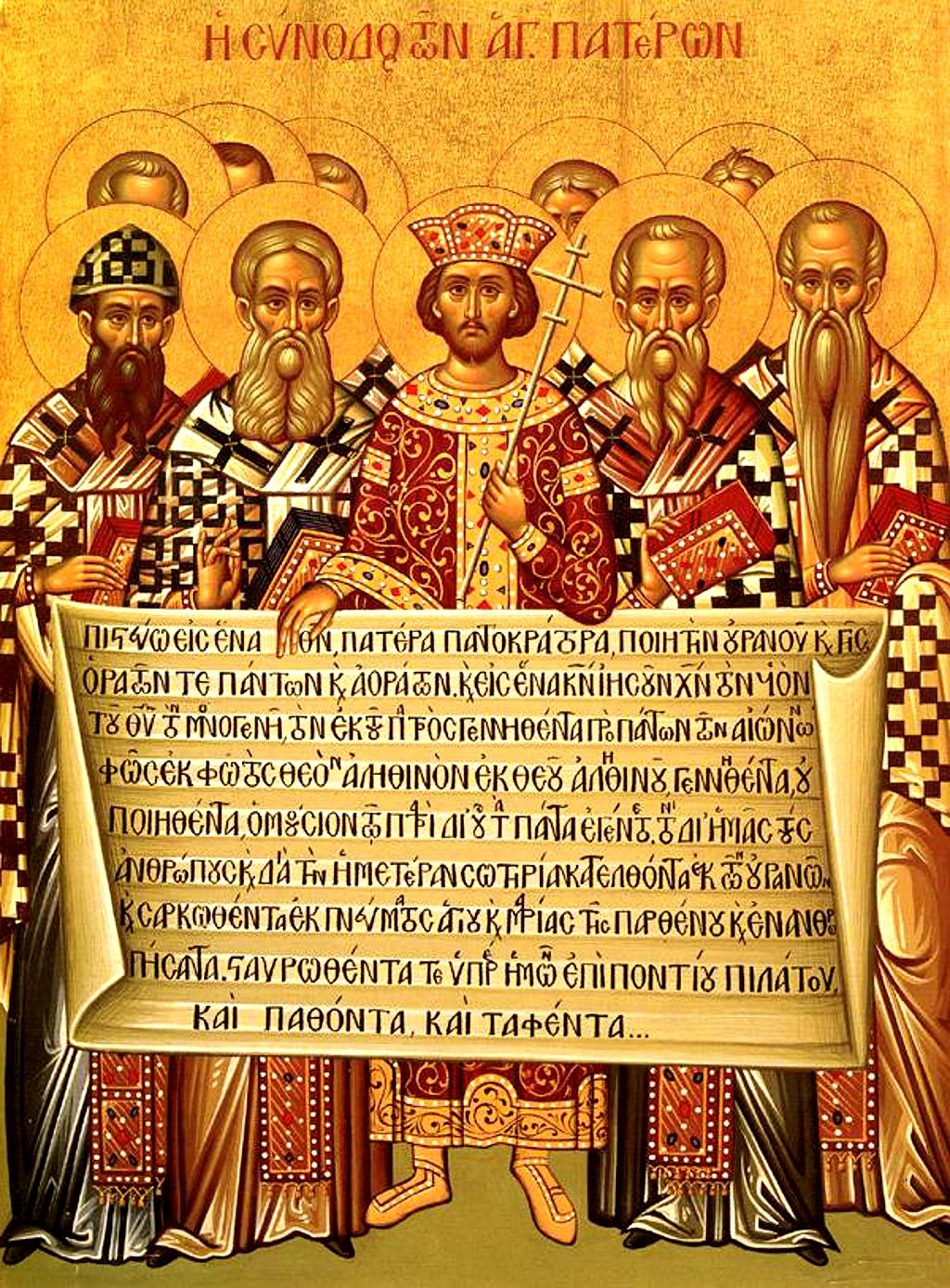LEICESTER, United Kingdom – British Christian leaders, including Cardinal Vincent Nichols, marked the 1700th anniversary of the Council of Nicaea as a “breath of hope” for the Church.
The first Ecumenical Council took place in 325, and went against the Arian heresy, which denied the true divinity of Jesus Christ.
This is why the Nicene Creed is read every Sunday at Mass – saying Jesus is “God from God, light from light, true God from true God, begotten not made, consubstantial with the Father.”
A statement from the presidents of Churches Together in England – which includes the Catholic Church, the Free Churches Group, the Lutheran Church, the Orthodox Church, the Church of England, and the Pentecostal Church – said In a world “suffering because of our fallen nature” the churches are given a breath of hope when it reflects “on the sacred words of the confession of our common Christian faith and recall that we still share our belief in the Son of God, Jesus the Christ.”
“The Acts of the Apostles records that in the earliest days, as the message of Jesus was preached and it spread across the Mediterranean lands and beyond, questions arose and there were tensions and divisions among those who came to the faith. In response to this, the apostles and elders were gathered together in Jerusalem to address these pressing matters. This was a prelude and guide as to how the universal Church would guard and defend the Truth of God, Who is none other than Christ Himself – the way, the truth and the life of the world,” the statement says.
“Over the years, new controversies and challenges arose and in the year 325 Emperor Constantine convened a gathering of Christian elders in Nicaea (situated in modern-day Türkiye), from across the Roman Empire to discuss and clarify certain issues, especially that of the Person of Jesus Christ. He did so also in response to threats to the cohesion and stability in society, recognizing that harmony in society drew on stability in religious belief,” it continues.
“The critical challenge centered on how the Church should understand the relationship between the Father and the Son. Guided by the Holy Spirit, the 318 church leaders who attended the gathering stated that the Son is, in fact, ‘homoousios to Patri’, of the same essence or nature as the Father, and in one voice of unity proclaimed this to the world,” the statement says.
Although the the Council of Nicaea happened over 1000 years ago, the Arian thought still pokes its head into the Church.
Writing last year, Father Dwight Longenecker referred to this “temptation,” noting on his website that today, Arianism takes the guise of humanism.
“Arianism today is an interpretation of Christianity according to this materialistic, humanistic philosophy. Clearly, Jesus Christ as the Divine Son of God and the co-eternal second person of the Holy Trinity doesn’t really fit,” Longenecker wrote. “Instead Jesus is a good teacher, a wise rabbi, a beautiful example, a martyr for a noble cause,” he also wrote.
“At most,” Longenecker wrote, “[Jesus] is a human being who is ‘so fulfilled and self-actualized that he has ‘become divine’.’ To put it another way, ‘Jesus is so complete a human being that he reveals to us the divine image in which we were all created–and therefore shows us what God is like.’ There is a sense in which this ‘divinization’ happened to Jesus as a result of the graces he received from God, the life he led and the sufferings he endured.”
Nor is this “New Arianism” affecting only “liberal” Christians. These beliefs permeate many Christian denominations, including some of the more “conservative” groups within the broad fold of Christianity.
A 2022 survey of Evangelical Christians in the United States – some of the most “conservative” Christians in the country – found that 73 percent agreed with the statement that “Jesus is the first and greatest being created by God,” and 43 percent agreed with the statement “Jesus was a great teacher, but he was not God.”
The British Christian leaders said in their statement the Council of Nicaea was “a means of setting the boundaries of the faith.”
“As inheritors of the proclamation and the statement of faith that came from this important event, Christian leaders throughout the world gather this year 2025 to mark the 1700th anniversary of the Council of Nicaea,” the statement said.
“We come together to participate in the Lord’s unity to proclaim and affirm that – ‘We believe in one God, the Father almighty, creator of heaven and earth and of all things visible and invisible. And in one Lord, Jesus Christ, the only-begotten Son of God, begotten of the Father before all ages; He is, as we affirm, Light of Light, true God of true God, begotten not created, of the same and one essence as the Father’,” it added.
“Often divided by our sins and arrogance, we now come together in unity, with one voice and one heart, as did those divinely-guided individuals seventeen hundred years ago to defend the Truth that has been entrusted to us. We come together to reiterate the message and truth of Nicaea,” say the presidents of Churches Together in England.
Follow Charles Collins on X: @CharlesinRome














